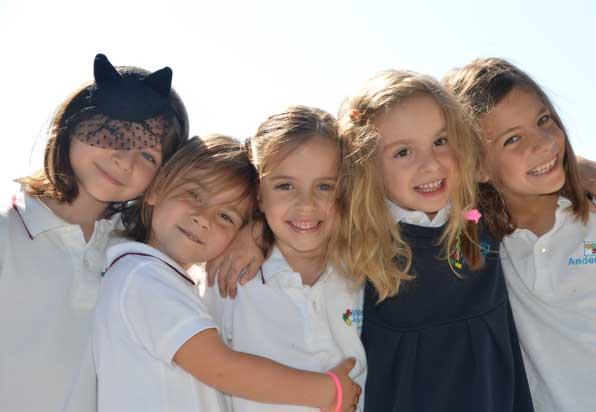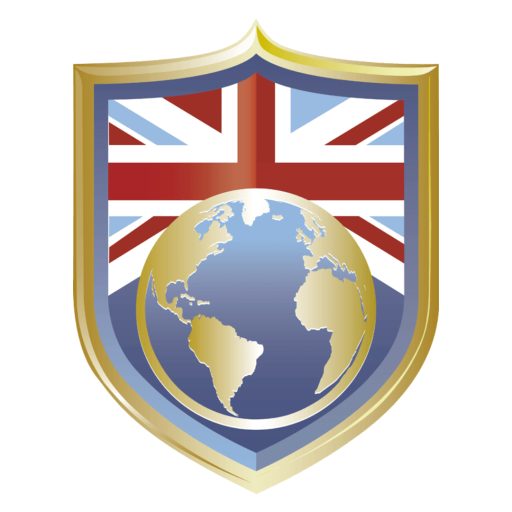Home » Key Stage 2: Years 3, 4, 5 and 6
Key Stage 2: Years 3, 4, 5 and 6
In Key Stage 2 (years 3, 4, 5 and 6) children range from 7 to 10 years of age.
Recognized by the Ministry of Education (MIM), we strive to provide an exceptional learning environment that nurtures well-rounded students.
Our teaching staff, consisting of highly qualified and native English-speaking educators, is dedicated to fostering a holistic educational experience. With a student-centered philosophy, our organization is designed to cater to the unique needs and aspirations of each student.
Our educational program goes beyond traditional academics. We aim to shape students into well-rounded individuals through a comprehensive curriculum that emphasizes critical thinking, creativity, and personal development. With a focus on academic excellence, we also promote character building, social skills, and global citizenship.

Our commitment to equality is deeply embedded in our educational philosophy. We celebrate diversity and ensure that every student feels valued, respected, and included. Our inclusive learning environment fosters a sense of belonging and promotes a multicultural understanding among students.
Through a combination of innovative teaching methods, state-of-the-art facilities, and a supportive community, we provide a platform for students to explore their full potential. We offer a wide range of extracurricular activities, including sports, arts, and clubs, to encourage students’ talents and passions.
With our excellent academic reputation, dedication to equality, and student-centered approach, we aim to empower our students to become confident, compassionate, and successful individuals. Join us at the International Elementary School, where education knows no boundaries, and every child can thrive!

School subjects
By the beginning of year 3, pupils should be able to read books written at an age-appropriate interest level. Teaching is directed towards developing their vocabulary and the breadth and depth of their reading, making sure that they become independent, fluent and enthusiastic readers who read widely and frequently. Pupils should be able to write down their ideas with a reasonable degree of accuracy and with good sentence punctuation.
Specific requirements for pupils to discuss what they are learning and to develop their wider skills in spoken language form part of this programme of study. In years 3 and 4, pupils should become more familiar with and confident in using language in a greater variety of situations, for a variety of audiences and purposes, including through drama, formal presentations and debate.
By the beginning of year 5, pupils should be able to read aloud a wider range of poetry and books written at an age-appropriate interest level with accuracy. They should be able to read most words effortlessly and to work out how to pronounce unfamiliar written words with increasing automaticity.Pupils should be able to write down their ideas
quickly. Their grammar and punctuation should be broadly accurate.
During years 5 and 6, teachers continue to emphasise pupils’ enjoyment and understanding of language. Pupils’ knowledge of language, gained from stories, plays, poetry, non-fiction and textbooks, will support their increasing fluency as readers, their facility as writers, and their comprehension.
Teachers prepare pupils for secondary education by ensuring that they can consciously control sentence structure in their writing and understand why sentences are constructed as they are. Pupils should understand nuances in vocabulary choice and age-appropriate, academic vocabulary.
The principal focus of mathematics teaching in lower Key Stage 2 is to ensure that pupils become increasingly fluent with whole numbers and the four operations, including number facts and the concept of place value. This ensure that pupils develop efficient written and mental methods and perform calculations accurately with increasingly large whole numbers.
Teaching also ensures that pupils draw with increasing accuracy and develop mathematical reasoning and read and spell mathematical vocabulary correctly.
The principal focus of mathematics teaching in upper Key Stage 2 is to ensure that pupils extend their understanding of the number system and place and develop the connections between multiplication and division with fractions, decimals, percentages and ratio.
At this stage, pupils develop their ability to solve a wider range of problems, including increasingly complex properties of numbers and arithmetic, and problems demanding efficient written and mental methods of calculation. Pupils are introduced to the language of algebra. Pupils also classify shapes with increasingly complex geometric properties.
By the end of year 6, pupils should be fluent in written methods for all four operations.
Pupils should read, spell and pronounce mathematical vocabulary correctly.
The principal focus of science teaching in lower key stage 2 is to enable pupils to broaden their scientific view of the world around them. They do this through exploring, talking about, testing and developing ideas about everyday phenomena and the relationships between living things and familiar environments, and by beginning to develop their ideas about functions, relationships and interactions. They ask their own questions about what they observe, make some decisions about which types of scientific enquiry are likely to be the best and draw simple conclusions, using a correct scientific vocabulary.
‘Working scientifically’ is always taught through and clearly related to substantive science content in the programme of study.
History helps pupils to gain a coherent knowledge and understanding of Britain’s past and that of the wider world. We aim to ensure that all pupils:
- know and understand the history of Britain as a coherent, chronological narrative
- know and understand significant aspects of the history of the wider world
- gain and deploy a historically grounded understanding of abstract terms such as ‘empire’, ‘civilisation’, ‘parliament’ and ‘peasantry’
- understand historical concepts such as continuity and change, cause and consequence, similarity, difference and significance, and use them to make connections, draw contrasts, analyse trends, frame historically-valid questions and create their own structured accounts
- learn about significant events beyond living memory
- learn about the lives of notable men/women/children, taken from the history of the world
- understand the methods of historical enquiry
- gain historical perspective by placing their growing knowledge into different contexts, understanding the connections between cultural, economic, military, political, religious and social history; and between short- and long-term timescales
We aim to inspire in pupils a curiosity and fascination about the world and its people. Geographical knowledge about natural and human environments make pupils aware of Earth’s key physical and human processes. Pupils also become competent in data analyse, interpret geographical information (maps, diagrams, globes, aerial photographs and Geographical Information Systems) and achieve numerical and quantative skills.
Pupils are taught to
- locate the world’s countries, using maps to focus on Europe (including the location of Russia) and North and South America, concentrating on their environmental regions, key physical and human characteristics, countries, and major cities
- name and locate counties and cities of the United Kingdom, geographical regions and their identifying human and physical characteristics, key topographical features (including hills, mountains, coasts and rivers), and land-use patterns; and understand how some of these aspects have changed over time
- identify the position and significance of latitude, longitude, Equator, Northern Hemisphere, Southern Hemisphere, the Tropics of Cancer and Capricorn, Arctic and Antarctic Circle, the Prime/Greenwich Meridian and time zones (including day and night)
Computing has deep links with mathematics, science, and design and technology.
Pupils are taught the principles of information and computation, and how digital systems work. Computing also ensures that pupils become digitally at a level suitable for the future workplace.
In Key Stage 2 pupils are taught to
- design, write and debug programs that accomplish specific goals, including controlling or simulating physical systems; solve problems by decomposing them into smaller parts
- use sequence, selection, and repetition in programs; work with variables and various forms of input and output
- use logical reasoning to explain how some simple algorithms work and to detect and correct errors in algorithms and programs
- understand computer networks including the internet; how they can provide multiple services, such as the world wide web; and the opportunities they offer for communication and collaboration
- use search technologies effectively, appreciate how results are selected and ranked, and be discerning in evaluating digital content
- select, use and combine a variety of software (including internet services) on a range of digital devices to design and create a range of programs, systems and content that accomplish given goals, including collecting, analysing, evaluating and presenting data and information
- use technology safely, respectfully and responsibly; recognise acceptable/unacceptable behaviour; identify a range of ways to report concerns about content and contact
A high-quality physical education curriculum inspires all pupils to succeed and excel in competitive sport and other physically-demanding activities. It provides opportunities for pupils to become physically confident in a way which supports their health and fitness. Opportunities to compete in sport and other activities build character and help to embed values such as fairness and respect. The national curriculum for physical education aims to ensure that all pupils
- develop competence to excel in a broad range of physical activities
- are physically active for sustained periods of time
- engage in competitive sports and activities
- lead healthy, active lives
PSHE (personal, social, health and education)
The principal focus of science teaching in Key Stage 1 is to enable pupils to experience and observe phenomena, looking more closely at the natural and humanly-constructed world around them. They are encouraged to be curious, ask questions about what they notice, observe changes over a period of time, notice patterns, group and classify things, carry out simple comparative tests, and find things out using secondary sources of information. They begin to use simple scientific language. Most of the learning about science be done through the use of first-hand practical experiences, but there is also be some use of appropriate secondary sources, such as books, photographs and videos.
They learn about plants and animals, including humans, uses of everyday materials. Y 1 also learns about seasonal changes and Y 2 also learns about living things and their habitats.
Art, craft and design challenge pupils to discover their own creativity. Pupils are equipped with the knowledge and skills to experiment, invent and create their own works of art, craft and design. As pupils progress, they develop a more rigorous understanding of art and design. They also learn how art and design both reflect and shape history, and contribute to the culture, creativity and wealth of the world.
In Key Stage 2 pupils are taught
- to create sketch books to record their observations and use them to review and revisit ideas
- to improve their mastery of art and design techniques, including drawing, painting and sculpture with a range of materials [for example, pencil, charcoal, paint, clay]
- about great artists, architects and designers in history
Music is a universal language that embodies one of the highest forms of creativity. Teaching music is also about engaging and inspiring pupils to develop a love of music and their talent as musicians, and so increasing their self-confidence, creativity and sense of achievement.
In Key Stage 2 pupils are taught to
- play and perform in solo and ensemble contexts, using their voices and playing musical instruments with increasing accuracy, fluency, control and expression
- improvise and compose music for a range of purposes using the inter-related dimensions of music
- listen with attention to detail and recall sounds with increasing aural memory
- use and understand staff and other musical notations
- appreciate and understand a wide range of high-quality live and recorded music drawn from different traditions and from great composers and musicians
- develop an understanding of the history of music

